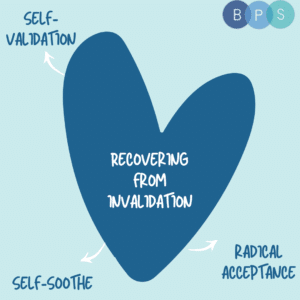What The Heck is a Dialectic?
What the Heck is a Dialectic?
By Avery Carmichael, BPS Social Work Intern
Undergirding all that is Dialectical Behavior Therapy (DBT) is the eponymous concept of dialectics. I will start by saying, in full transparency, that the term ‘dialectic’ is an oft-intimidating word to define. Especially when considering its rich philosophical roots, one can easily dive deeply down the rabbit hole of Marx, Engels, Popper, and Bunge. For now, I suggest you don’t.
Instead, in this moment, as you read this text — presumably because you are interested in, fascinated by, or curious about DBT — let’s take things easy and begin with the following definition: Dialectics is a worldview that stresses that reality is made up of polarities. Two things, regardless of whether they are wholly opposites, can exist at the same time. For example, one can lose a loved one after a long illness and feel at once sad for the loss, and relieved for the alleviation of that loved one’s suffering. Likewise, dialectics emphasizes the interconnected nature of the world, as well as the constancy of change. You’ve probably heard it before, and you’ll surely hear it again: Change is the only constant.
DBT exists in the pursuit of synthesizing and integrating these polarities within the self, of engaging in an ongoing reconciliation of dialectics. It is a search for balance, an attempt at finding the ‘and’ rather than the ‘but.’ The most notable dialectic at play, within a DBT-focused therapeutic relationship, and DBT in general, is the effort to balance acceptance and change.
Here are some more examples of dialectical thinking and circumstances:
- I am doing the best I can and I can do better
- I want to live and I want to die
- I want to quit drinking and I want to have a drink
- I love my partner and I hate my partner’s tone of voice when she’s angry
I know. A lot to take in, and that’s okay! Dialectical thinking, in its assessment of the inherent complexity of the world, is a complex concept. I just summarized an impactful and timeless philosophy, the core component of Dr. Marsha Linehan’s groundbreaking treatment, in a couple of paragraphs. Certainly, the work only starts here, and (see what I did there?) take some time to notice dialectics that exist in your day-to-day life. Speak them aloud to yourself, write them down, or point them out to a friend. Observe how it feels to insert ‘and’ in place of ‘but.’ Seek out the shades of grey, moving away from the binary.
